
Condemned in October 1526 by Tunstall, who issued warnings to booksellers and had copies of this man's English Translation burned in public
From Wykipedia
William Tyndale (sometimes spelled Tindall or Tyndall; pronounced /ˈtɪndəl/) (c. 1494 – 1536) was a 16th-century Protestant reformer and scholar who translated the Bible into the Early Modern English of his day. While a number of partial and complete Old English translations had been made from the seventh century onward, and Middle English translations particularly during the 14th century, Tyndale's was the first English translation to draw directly from Hebrew and Greek texts, and the first to take advantage of the new medium of print, which allowed for its wide distribution. In 1535 Tyndale was arrested, jailed in the castle of Vilvoorde outside Brussels for over a year, tried for heresy and then strangled and burnt at the stake.Much of Tyndale's work eventually found its way into the King James Version (or "Authorised Version") of the Bible, published in 1611, which, as the work of 54 independent scholars revising the existing English versions, is to a large extent based on Tyndale's translations.
Tyndale was born around 1494, possibly in one of the villages near Dursley, Gloucestershire. Within his immediate family, the Tyndales were also known at that period as Hychyns (Hitchins), and it was as William Hychyns that Tyndale was educated at Magdalen Hall, Oxford (now part of Hertford College, Oxford). Tyndale's family had migrated to Gloucestershire within living memory of his birth, quite probably as a result of the Wars of the Roses, and it is known that the family derived from Northumberland but had more recently resided in East Anglia. Tyndale's uncle, Edward, was receiver to the lands of Lord Berkeley and it is this fact that provides evidence of the family's origin. Edward Tyndale is recorded in two genealogies as having been the brother of Sir William Tyndale, KB, of Deane, Northumberland, and Hockwald, Norfolk, who was knighted at the marriage of Arthur, Prince of Wales to Katherine of Aragon. Tyndale's family was therefore derived from Baron Adam de Tyndale, a tenant-in-chief of Henry I (and whose family history is related in Tyndall).
Tyndale was admitted to the Degree of Bachelor of Arts at Oxford University. in 1512, the same year he became a subdeacon. He was made Master of Arts in July 1515, three months after he had been ordained into the priesthood. The MA degree allowed him to start studying theology, but the official course did not include the study of scripture. This horrified Tyndale, and he organised private groups for teaching and discussing the scriptures.
He was a gifted linguist (fluent in French, Greek, Hebrew, German, Italian, Latin, Spanish in addition to his native English) and subsequently went to Cambridge (possibly studying under Erasmus, whose 1503 Enchiridion Militis Christiani — "Handbook of the Christian Knight" — he translated into English). It is also believed that he met Thomas Bilney and John Frith at Cambridge.
Tyndale became chaplain in the house of Sir John Walsh at Little Sodbury in about 1521, and tutor to his children. His opinions involved him in controversy with his fellow clergymen, and around 1522 he was summoned before the Chancellor of the Diocese of Worcester on a charge of heresy.
Soon afterwards, he had already determined to translate the Bible into English: he was convinced that the way to God was through His word and that scripture should be available even to common people. Foxe describes an argument with a "learned" but "blasphemous" clergyman, who had asserted to Tyndale that, "We had better be without God's laws than the Pope's." In a swelling of emotion, Tyndale made his prophetic response: "I defy the Pope, and all his laws; and if God spares my life, I will cause the boy that drives the plow in England to know more of the Scriptures than the Pope himself!"
Tyndale left for London in 1523 to seek permission to translate the Bible into English and to request other help from the Church. In particular, he hoped for support from Bishop Cuthbert Tunstall, a well-known classicist whom Erasmus had praised after working with him on a Greek New Testament; but the bishop, like many highly-placed churchmen, was uncomfortable with the idea of the Bible in the vernacular and told Tyndale he had no room for him in his household.Tyndale preached and studied "at his book" in London for some time, relying on the help of a cloth merchant, Humphrey Monmouth. He then left England under a pseudonym and landed at Hamburg in 1524 with the work he had done so far on his translation of the New Testament. He completed his translation in 1525, with assistance from Observant friar William Roy.
In 1525, publication of his work by Peter Quentell in Cologne was interrupted by anti-Lutheran influence, and it was not until 1526 that a full edition of the New Testament was produced by the printer Peter Schoeffer in Worms, an imperial free city then in the process of adopting Lutheranism. More copies were soon being printed in Antwerp. The book was smuggled into England and Scotland, and was condemned in October 1526 by Tunstall, who issued warnings to booksellers and had copies burned in public.
Following the publication of Tyndale's New Testament, Cardinal Wolsey condemned Tyndale as a heretic and demanded his arrest.
Tyndale went into hiding, possibly for a time in Hamburg, and carried on working. He revised his New Testament and began translating the Old Testament and writing various treatises. In 1530, he wrote The Practyse of Prelates, opposing Henry VIII's divorce on the grounds that it was unscriptural and was a plot by Cardinal Wolsey to get Henry entangled in the papal courts. This resulted in the king's wrath being directed at him: he asked the emperor Charles V to have Tyndale apprehended and returned to England.
Eventually, Tyndale was betrayed to the authorities. He was seized in Antwerp in 1535, betrayed by Henry Phillips, and held in the castle of Vilvoorde near Brussels.
He was tried on a charge of heresy in 1536 and condemned to death, despite Thomas Cromwell's intercession on his behalf. He was tied to the stake, strangled, and his dead body then burnt. Foxe gives 6 October as the date of commemoration (left-hand date column), but gives no date of death (right-hand date column). The traditional date of commemoration is 6 October, but records of Tyndale's imprisonment suggest the date might have been some weeks earlier.
Tyndale's final words, spoken "at the stake with a fervent zeal, and a loud voice", were reported as "Lord! Open the King of England's eyes."








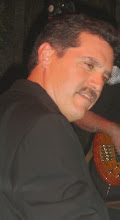





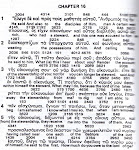

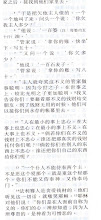






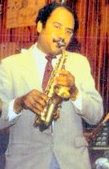







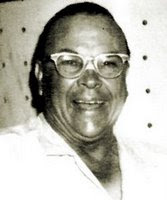




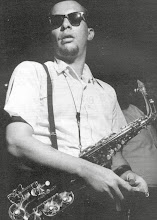




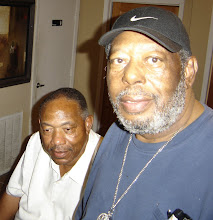













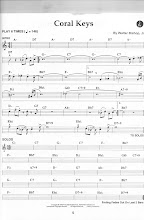

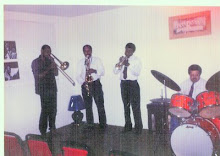






No comments:
Post a Comment